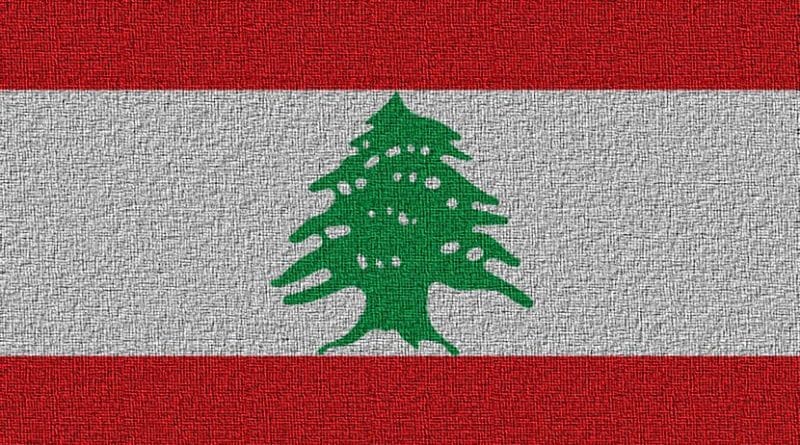Arab Uprising Whirlwind Catches Lebanon – OpEd
By Press TV
By Mohiyeddin Sajedi
Lebanon has always been the epitome of freedom of speech in the Middle East. The press has a long history in the Lebanon and the variety of political and religious groups there have prevented its diverse community from ever falling under the domination of one of its internal powers.
It’s all too clear that such a community would never be affected by the same fate as the other Arab countries and there would never be any sign of a revolution there. Most of the revolutionary leaders which have come close to power in Arab countries have either spent some part of their lives in Lebanon or have briefly benefitted from the blessing of its freedom. Even though there is no real democracy in Lebanon and the Lebanese factions run the country in the form of a “consensus democracy,” its political situation has always been the envy of the oppressed people of other Arab countries.
Notwithstanding, Lebanon is not disconnected from the developments and revolutions of other Arab countries. The groups and parties of this country are categorized based on their support of or opposition to one or more of the Arab governments who are currently categorized as exposed to threat or at risk of collapse. While some of the political wings in Lebanon such as Saad Hariri, former prime minister and the leader of the March 14 alliance, are accused of shipping weapons to Syria to incite a civil war there, the president, parliament speaker and the prime minister of Lebanon support Syrian President Bashar al-Assad.
The support of the Lebanese leaders for Damascus appears natural on account of its special historical and geographical ties with Syria. The Lebanese elite are intensely afraid of the effects of the unseemly repercussions of a civil war in Syria or its disintegration on their own small country, especially that Israel is still lying in ambush for Lebanon and the unbalancing of the political map of the Middle East might tempt the appetite of its leaders for a fresh round of adventurism in Lebanon.
What has recently become the focus of attention in Lebanon is the stances and demeanor of Archbishop Bechara el-Rai, the new Maronite patriarch, who has faced opposition and criticism from the March 14 alliance, which is close to Western states. Their censure has escalated to such an extent that they have accosted the outgoing patriarch, Nasrallah Sfeir, and are seeking to place him head to head with his successor.
It’s still not clear why Nasrallah Sfeir stepped down, voluntarily or otherwise, from his religio-political position. Some believe that the Vatican has played a key role in this replacement. Developments in Arab countries and increase in the power of Islamist groups has concerned the Vatican that the Christians of the Middle East and especially Lebanon might be exposed to force and threat. Thus, a figure with no previous hostilities on his records must assume the leadership of the Maronite Christians to be able to guarantee the future for Christians.
The former Lebanese Maronite patriarch Nasrallah Sfeir was on the March 14 alliance’s side and not willing at all to build a normal relationship with its rival March 8 faction. He was oppose to the trial of Israeli mercenaries after they fled southern Lebanon in 2000 and insisted that light punitive sentences be issued against them. He never travelled to the liberated southern Lebanon to avoid being accused of supporting anti-Israeli resistance.
The new Patriarch has adopted a new policy in line with the recent developments in the Arab world, a policy which the previous patriarch was incapable of implementing due to his political background.
Patriarch Bechara el-Rai made a trip to France a few weeks ago to warn President Nicolas Sarkozy that his and other European leaders’ attempts to initiate transformations in Syria and change its regime would not benefit Lebanese Christians and the rise to power of the Muslim Brotherhood as well as Salafis in the country means wreaking havoc on Christian interests and setting them on fire.
He also supported the maintenance of Hezbollah’s military capabilities by pointing out that it is the Israeli occupation of Shebaa Farms south of Lebanon which makes Hezbollah retain its armed forces and that Israel’s withdrawal from these regions will resolve the problem.
Sources close to the Lebanese patriarch have spoken about his great astonishment after hearing the proposal made by the French president, who has asked el-Rai why all Lebanese Christians do not immigrate to Europe and the West to steer clear of the problems or dangers potentially caused by regime change in Syria.
Another significant measure taken by the Lebanese patriarch was his several-day trip to southern Lebanon to visit the liberated areas, which was warmly welcomed by the Hezbollah and Amal movements. During the journey, he addressed the residents and members of the resistance organization and praised their sacrifices in repelling Israeli forces. He also called for vigilance against threat that could split and disintegrate the region.
Such positions are not favorable to the March 14 alliance leaders and the Western governments sponsoring. These leaders have, as a counteraction, tried to use the previous Maronite patriarch in order to threaten Bechara el-Rai with removal from his position or pressuring him into continuing to follow the political line of his predecessor.
In addition to Paris, which resentfully tolerated the opposition of Lebanon’s Maronite leaders to regime change in Syria, Washington has informed el-Rai that he cannot meet President Barack Obama during his trip to the United States despite the previously drawn schedule and may meet only with the low-ranking American officials. And this is why the Maronite patriarch of Lebanon has cancelled his trip to the US.

